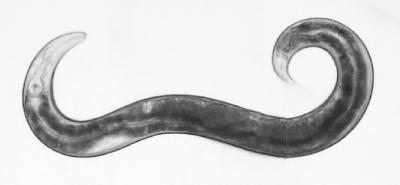Liver acid could be ‘elixir’ to extend life, scientists say
Lithocholic acid boosts muscle regeneration and enhances grip strength and running capacity
Your support helps us to tell the story
From reproductive rights to climate change to Big Tech, The Independent is on the ground when the story is developing. Whether it's investigating the financials of Elon Musk's pro-Trump PAC or producing our latest documentary, 'The A Word', which shines a light on the American women fighting for reproductive rights, we know how important it is to parse out the facts from the messaging.
At such a critical moment in US history, we need reporters on the ground. Your donation allows us to keep sending journalists to speak to both sides of the story.
The Independent is trusted by Americans across the entire political spectrum. And unlike many other quality news outlets, we choose not to lock Americans out of our reporting and analysis with paywalls. We believe quality journalism should be available to everyone, paid for by those who can afford it.
Your support makes all the difference.A type of bile produced by the liver has similar effects as the commonly followed method of calorie restriction in promoting longevity, Chinese scientists have found.
In a new study, published in the journal Nature on Thursday, the scientists assessed the effects of lithocholic acid, or LCA, in genetically modified mice with human tissues and compared them to calorie restriction.
They found that LCA, which is naturally produced by the liver, can boost muscle regeneration and enhance grip strength and running capacity.
Previous research has shown that mammals accumulate LCA during calorie restriction and it activates a key molecule involved in metabolism called AMP-activated protein kinase, or AMPK.
AMPK, which is activated when the glucose levels drop, is key to ageing as it regulates processes like inflammation and nerve degeneration.
In experiments on fruit flies and a nematode called C elegans, the scientists found LCA activates AMPK and induces anti-ageing effects in a manner similar to calorie restriction. Since these animals do not synthesise LCA naturally, the research indicates that they gain the effects of LCA once administered.

Rendering the animals incapable of producing AMPK resulted in the loss of the LCA effects when it was administered, confirming that the liver acid acted in an “AMPK-dependent manner”.
The scientists took blood serum from mice that underwent calorie restriction for four months and put it into rodents fed a normal diet. They found the injected serum led to AMPK activation in the mice’s liver and muscles.
The researchers also observed that LCA introduction increased the mean lifespan of nematodes from 22 to 27 days and of flies by four to five days.
The administration of “upregulated metabolite LCA alone can confer anti-ageing benefits” the scientists concluded in the study.
In further studies, they hope to address challenges in applying the findings to humans of various age groups and determine the appropriate dosage of the liver acid.
“People have long sought an elixir for longevity,” study lead author, Lin Shengcai from Xiamen University, told the South China Morning Post.
“LCA is one possibility, as it represents one molecule in the blood of people practising calorie restriction and activates AMPK, which in turn further induces metabolite changes in the blood.”

Join our commenting forum
Join thought-provoking conversations, follow other Independent readers and see their replies
Comments